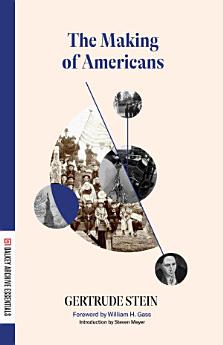The Making of Americans
About this ebook
In The Making of Americans, Gertrude Stein sets out to tell "a history of a family's progress," radically reworking the traditional family saga novel to encompass her vision of personality and psychological relationships. As the history progresses over three generations, Stein also meditates on her own writing, on the making of The Making of Americans, and on America itself.
About the author
Gertrude Stein (1874-1946) was born in Pittsburgh to a prosperous German-Jewish family. She was educated in France and the United States, worked under the pioneering psychologist William James, and later studied medicine. With her brother Leo she was an important patron of the arts, acquiring works by many contemporary artists, most famously Picasso, while her home became a popular meeting place for writers and painters from Matisse to Hemingway. Her books include Three Lives, Tender Buttons, and The Autobiography of Alice B. Toklas.
Steven Meyer is the author of Irresistible Dictation: Gertrude Stein and the Correlations of Writing and Science (2001, Stanford UP) as well as half a dozen essays on Stein’s narrative practices. In 2018 he edited the Cambridge Companion to Literature and Science and current works in progress include Robust Empiricisms: Jamesian Modernism between the Disciplines, 1878 to the Present. Material from Robust Empiricisms has appeared in numerous edited collections.
William H. Gass (1924-2017) was an essayist, novelist, and literary critic. He graduated from Kenyon College and received his PhD at Cornell University. He taught philosophy at both Purdue University and at Washington University in St. Louis where he was the David May Distinguished Professor of Humanities. In 1990, Gass founded the International Writers Center (now known as the Center for the Humanities) and served as its director until his retirement in 2000.







